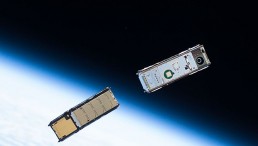ocean
Overfishing Leads to Aggressive Competition in Caribbean Coral Reefs
Introducing the Pocket Shark
Vampire Squids Reveal Far More Secrets Below—How These Deep-Sea Dwellers Are Changing The Biology Game
Two Sperm Whale Deaths Spark Conversation of Conservation Efforts in Florida
After Shark Attack, Mother and Newborn Sperm Whales are Put Down on Neptune Beach
The Nonstop Flight Down South—How One Songbird Species Commutes Thousands of Miles Without a Break
The NonStop Flight Down South—How One Songbird Species Commutes Thousands of Miles Without a Break
Antibiotic Resistant Bacteria—Could Swimming This Spring Break Land You In the Hospital?
Gulf Stream Slowed by Greenland Ice Sheet Melting
How the Neurons of A Sea Slug Could Change Neurobiology Forever
Ganymede's Aurora Hints at Ocean Under Jupiter Moon's Surface
Tide of the Decade Sweeps Across France’s Atlantic Coast, Turning Islets into Islands
Arctic Winter Ice Reaches All Time Low
Tropical Cyclone Pam Devastates Vanuatu in the South Pacific
Most Popular

Ultra-Processed Foods Linked to Shorter Lifespan, Study Reveals; How Dangerous Are They?

We Strange Star's Eclipsing Mass Could Help Search For Alien Civilization as

Anavex Life Sciences Alzheimer's Treatment Brings Hope to Millions

Alexander the Great's Bathroom From 2,300 Years Ago Where Young Ruler Could Have Bathed With Companion Discovered by Archaeologists in Royal City of Aigai





